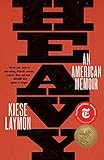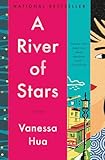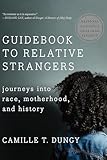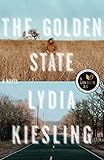I started 2018 hugely pregnant, so looking back, I suppose it’s no surprise that I spent a lot of time dwelling in writing about bodies. The first book I treated myself to this year—and feasted on—was Carmen Maria Machado’s Her Body and Other Parties. Here were bodies I could get down with: female bodies, brown bodies, queer bodies, possibly magical bodies, doing everything: working, eating, cooking, loving, haunting, surviving. Other books I have treasured, that have fucked me up in equal measure, and are distinctly masterful at examining life (and death and aging, menopause, trauma, race, and care) as it is experienced in human physical form: The Gifts of the Body by Rebecca Brown, Heavy by Kiese Laymon, The Middlepause by Marina Benjamin.


 I did have that baby, in March, and the four or so months that followed (during which I was also on book tour, something I do not recommend) are a blur. Because I didn’t have the attention span or capability to read whole books, I left stacks of New Yorkers around the house and in my bag, pre-opened to articles I wanted to read. I actually ended up reading a lot this way (while nursing, while the baby was napping, on flights), and feeling quite accomplished about it. Now, though, I realize I remember absolutely nothing of what I read, save for this detail from a profile of ESPN host Stephen A. Smith: that he once hosted a late-night R&B radio show called “Tender Moments.”
I did have that baby, in March, and the four or so months that followed (during which I was also on book tour, something I do not recommend) are a blur. Because I didn’t have the attention span or capability to read whole books, I left stacks of New Yorkers around the house and in my bag, pre-opened to articles I wanted to read. I actually ended up reading a lot this way (while nursing, while the baby was napping, on flights), and feeling quite accomplished about it. Now, though, I realize I remember absolutely nothing of what I read, save for this detail from a profile of ESPN host Stephen A. Smith: that he once hosted a late-night R&B radio show called “Tender Moments.”


 Sometime in late summer cookbooks, specifically Vibration Cooking by Vertamae Smart-Grovesner, as much a vivid memoir and cultural history of America as anything else, brought me back to reading and, in many ways, back to life. Samin Nosrat’s Salt Fat Acid Heat and Alison Roman’s Dining In were balms. When standing somnambulant in sweatpants and a soft bra in front of an open fridge filled with languishing vegetables and in desperate need of dinner, a common refrain in our house became “What would Samin do?” Often I’d just boil some vegetables, open a can of sardines or smoked trout, make Roman’s preserved lemon labneh or spiced olive oil, douse everything in the sauce, and call it good. During a year of postpartum haze, frequent travel, and constant energetic output, it was reading these warm, encouraging books that got me back into my kitchen, back into my body, and feeling (mostly) like myself again.
Sometime in late summer cookbooks, specifically Vibration Cooking by Vertamae Smart-Grovesner, as much a vivid memoir and cultural history of America as anything else, brought me back to reading and, in many ways, back to life. Samin Nosrat’s Salt Fat Acid Heat and Alison Roman’s Dining In were balms. When standing somnambulant in sweatpants and a soft bra in front of an open fridge filled with languishing vegetables and in desperate need of dinner, a common refrain in our house became “What would Samin do?” Often I’d just boil some vegetables, open a can of sardines or smoked trout, make Roman’s preserved lemon labneh or spiced olive oil, douse everything in the sauce, and call it good. During a year of postpartum haze, frequent travel, and constant energetic output, it was reading these warm, encouraging books that got me back into my kitchen, back into my body, and feeling (mostly) like myself again.


 I read nearly all of The Golden State by Lydia Kiesling on my 41st birthday on a beach in Mexico, and it really did feel like a gift: Affirmation that, given the current state of our country, I don’t want to know or be friends with anyone who is remotely okay. That our institutions are working exactly as they were designed to, and that they will fail us as humans. But that amid all this, there is still love and light and connection and grace. It was one of several books I read that also complicate the conventional ways we view and talk about motherhood, including Camille Dungy’s Guidebook to Relative Strangers, Vanessa Hua’s A River of Stars, and The Art of Waiting by Belle Boggs (I still think about Boggs’s essay “Solstice” all the time).
I read nearly all of The Golden State by Lydia Kiesling on my 41st birthday on a beach in Mexico, and it really did feel like a gift: Affirmation that, given the current state of our country, I don’t want to know or be friends with anyone who is remotely okay. That our institutions are working exactly as they were designed to, and that they will fail us as humans. But that amid all this, there is still love and light and connection and grace. It was one of several books I read that also complicate the conventional ways we view and talk about motherhood, including Camille Dungy’s Guidebook to Relative Strangers, Vanessa Hua’s A River of Stars, and The Art of Waiting by Belle Boggs (I still think about Boggs’s essay “Solstice” all the time).


 Because I’m also the mother of a four-year-old, in truth the most reading I did this year was of children’s books, always out loud, mostly the same ones over and over: Cora Cooks Pancit by Dorina K. Lazo Gilmore, Malala’s Magic Pencil by Malala Yousafzai, Peter’s Chair by Ezra Jack Keats, Hey Willy See the Pyramids and Swami on Rye by Maira Kalman. But it’s Russell and Lillian Hoban’s Frances books that I’ve read pretty much every day. The books are pleasurable and funny for adults and I love them, though not nearly as much as I love watching my daughter develop her own reading life. She relishes creating the tunes to Frances’s many songs, then marches through the world making up her own.
Because I’m also the mother of a four-year-old, in truth the most reading I did this year was of children’s books, always out loud, mostly the same ones over and over: Cora Cooks Pancit by Dorina K. Lazo Gilmore, Malala’s Magic Pencil by Malala Yousafzai, Peter’s Chair by Ezra Jack Keats, Hey Willy See the Pyramids and Swami on Rye by Maira Kalman. But it’s Russell and Lillian Hoban’s Frances books that I’ve read pretty much every day. The books are pleasurable and funny for adults and I love them, though not nearly as much as I love watching my daughter develop her own reading life. She relishes creating the tunes to Frances’s many songs, then marches through the world making up her own.
This summer was a strange time to have any sort of public platform to discuss parenting in America, especially as a woman of color and the daughter of immigrants, which is exactly what I was doing on book tour. Family separation made it impossible to not think and talk about our country’s shameful, inhumane, and morally bankrupt policies. I did so many events freshly postpartum and thinking about these things, with both the sharp fear and knowledge that at any moment I might completely lose track of what I was saying, or just start raging or weeping uncontrollably. I still live on that edge.
 My strongest memory of reading in 2018 will be a scene that repeated itself so many nights in our living room this summer: Reading the I Can Read Level 2 paperback version of A Baby Sister for Frances aloud, my infant daughter in my arms or upstairs asleep in her crib, her older sister in my lap or face pressed into my chest, my glasses fogging up as hot tears rolled down my face when I hit page 33: “A family is everybody all together.”
My strongest memory of reading in 2018 will be a scene that repeated itself so many nights in our living room this summer: Reading the I Can Read Level 2 paperback version of A Baby Sister for Frances aloud, my infant daughter in my arms or upstairs asleep in her crib, her older sister in my lap or face pressed into my chest, my glasses fogging up as hot tears rolled down my face when I hit page 33: “A family is everybody all together.”
More from A Year in Reading 2018
Don’t miss: A Year in Reading 2017, 2016, 2015, 2014, 2013, 2012, 2011, 2010, 2009, 2008, 2007, 2006, 2005
The post A Year in Reading: Angela Garbes appeared first on The Millions.
from The Millions https://ift.tt/2Qkc7ee
Comments
Post a Comment